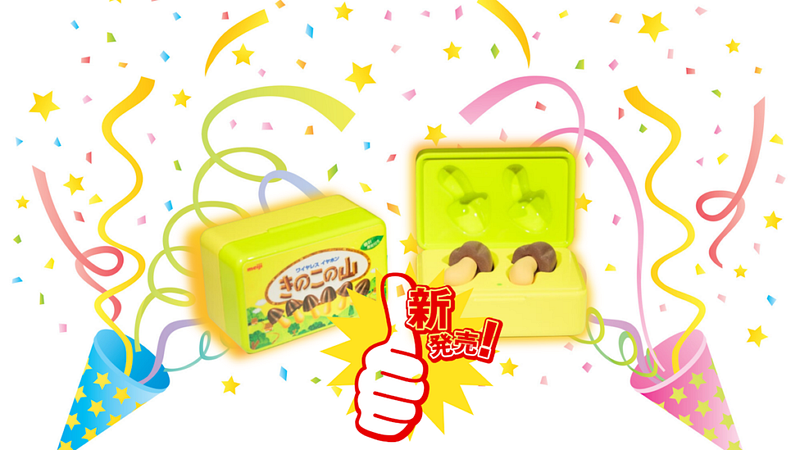Innovative Japanese Snack Transforms into AI-Enhanced Headphones
Written on
Chapter 1: The Concept of Wearable Snacks
Have you ever looked at a snack and thought, “I could wear that”? If so, Meiji's latest innovation is sure to excite you. Recently, the well-known Japanese company announced its plans to create headphones modeled after its beloved treat, Kinoko no Yama. Additionally, these headphones are designed to facilitate international communication by leveraging AI technology.

Section 1.1: The History of Kinoko no Yama
This isn't Meiji's first clever marketing strategy. The Kinoko no Yama snack, which features a chocolate mushroom cap atop a cracker base, was first launched in 1975. A few years later, it was joined by its counterpart, Takenoko no Sato, a chocolate-covered, cone-shaped cookie. Both products captured the hearts of consumers for decades.
However, by 2001, their popularity began to wane. To reignite interest, Meiji initiated a playful competition between the two snacks, famously dubbed The Kinoko-Takenoko War. Over the years, Kinoko often emerged victorious in this rivalry, but recently, Takenoko has gained the upper hand in sales.
Despite this shift, Kinoko no Yama remains a favorite, experiencing a resurgence this summer with the introduction of a chocolate-free variant featuring just the cracker base, a response to Japan's record-breaking heat.
Subsection 1.1.1: The Snack You Can Wear
In July, Meiji took its marketing to another level by collaborating with designer Michiru (@mitiruxxx on X) to envision what Kinoko no Yama would look like as wearable headphones. The playful concept was shared on social media, garnering over 264,000 likes and 100,000 retweets.

Encouraged by the overwhelming response, Meiji decided to turn this whimsical idea into reality. During their Kinotake Global Summit, they revealed plans to develop the Kinoko headphones in collaboration with AI company Weatherly Japan, known for its AI solutions aimed at enhancing sleep.
Section 1.2: Features of the Kinoko Headphones
These innovative headphones will offer more than just audio playback. By integrating with a smartphone app, users can select the language they wish to translate. Utilizing advanced AI technology, the app will facilitate real-time, two-way conversations across 127 languages.
Chapter 2: Responses from Snack Fans
In light of this announcement, Kinoko enthusiasts expressed their excitement, pledging to purchase the headphones upon release. Some fans took the opportunity to tease Takenoko for not having a similar product in development.
Meanwhile, fans of Takenoko voiced their demands for a corresponding version of the headphones, arguing that its design would also lend itself well to a similar concept.
The pressing question remains: how effective will these headphones be as a translation device? I have my doubts regarding the sophistication of the AI involved and whether it represents a genuine advancement in Machine Learning technology. Notably, the real challenge lies in whether these translators utilize robust Large Language Models that can adapt and improve over time.
Translation technology for Japanese has improved significantly, yet it still grapples with some major challenges, particularly in understanding context—a critical aspect when subjects are often implied rather than stated outright. This can lead to confusion in pronoun usage and misinterpretation of words like "mother" (母) and "father" (父). If the technology proves reliable for basic translation needs, such as asking for directions, it may well find its niche in the market. Only time will tell if this innovation is a genuinely useful tool or merely another clever marketing tactic from Meiji.
Sources ?????????????????? ????????127???AI??????. ITMedia ??????????????????????????? ???????????????. ITMedia Planning a trip to Japan? Let Unseen Japan Tours help you create a custom, guided tour experience uniquely suited to your interests!